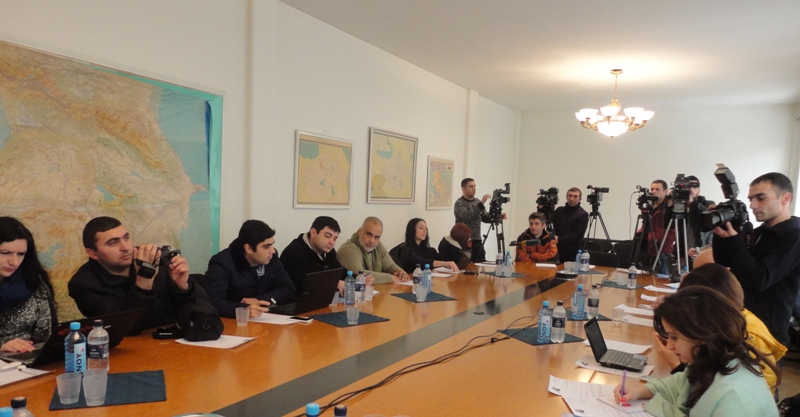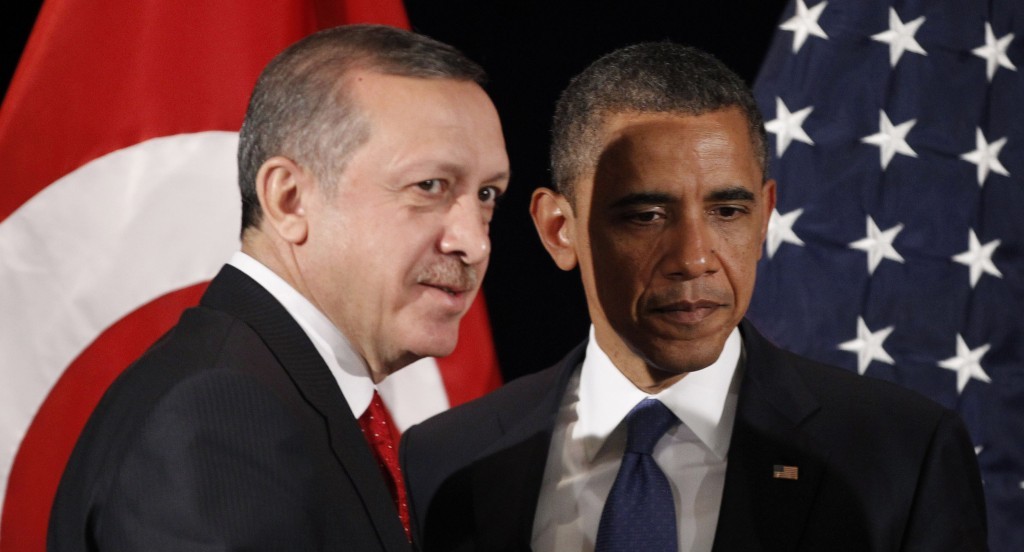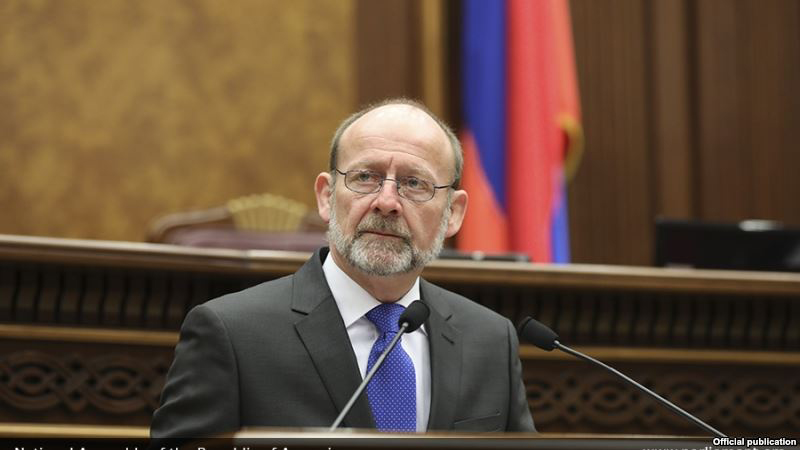YEREVAN — The Armenian Center for National and International Studies (ACNIS) held today a round-table discussion on documents related to Mountainous Karabakh (Artsakh) recently considered by European institutions.
The policy spotlight focused in particular on two anti-Armenian documents-one on “Escalation of Violence in Nagorno-Karabakh and the Other Occupied Territories of Azerbaijan” rejected in January by the Parliamentary Assembly of the Council of Europe (PACE) and the other entitled “Inhabitants of Frontier Regions of Azerbaijan are Deliberately Deprived of Water” ultimately adopted by it.
In his brief opening remarks, ACNIS research director Manvel Sargsyan said: “The various debates on the inflammatory PACE reports of January 26 have to date missed the policy gap on how international resolutions on Mountainous Karabakh reflect upon the situation in the conflict zone and the diplomacy of the settlement process.”
In his intervention on “PACE Resolutions: Dangers and Opportunities,” Heritage parliamentarian Tevan Poghosyan highlighted the challenges of charting a proactive and preemptive Armenian foreign policy.
Political scientist Sergey Minasyan, meanwhile, analyzed “the realities and illusions of the European dimension” of the Artsakh conflict, questioning the existence of any tangible effect of such political pronouncements upon the actual situation on the ground and corollary geostrategic, economic and diplomatic developments in the region.
The specialized seminar, which was attended by ACNIS founder Raffi K. Hovannisian, featured comments by leading regional analysts, policymakers, public activists, and journalists.










